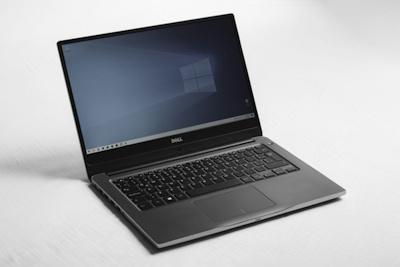Understanding Laptop Models and Generations: A Guide for Buyers

Whether you’re buying a new laptop for work, school, gaming, or general use, you’ll often come across terms like “models” and “generations”—especially when looking at the processor or the brand lineup. But what do these terms actually mean, and how do they affect your decision? This guide will break it down simply and clearly.
What Is a Laptop Model?
A laptop model refers to a specific configuration or design released by a manufacturer. It usually includes details like screen size, processor type, RAM, storage, GPU (graphics card), and other features.
Example:
- Dell XPS 13 9310
- Brand: Dell
- Series: XPS
- Screen size: 13 inches
- Model number: 9310 (denotes a specific version with a specific chipset and hardware)
Most brands (Dell, HP, Lenovo, Asus, Apple, etc.) release several series (e.g., ThinkPad, Pavilion, ZenBook, MacBook) and within each series, various models that differ in features and specs.
What Are Laptop Generations?
Laptop generations typically refer to the generation of the processor (CPU) inside the laptop, not the laptop itself. For example, Intel and AMD release new processor generations almost yearly, each with improvements in performance, efficiency, and features.
Example:
- Intel Core i5-1240P
- i5 = mid-range performance line
- 12 = 12th generation
- 40P = specific chip designation (P-series chips balance performance and power usage)
Intel Processor Generations:
| Generation | Year Released | Example Chip | Notes |
|---|---|---|---|
| 8th Gen | 2017 | i7-8550U | Good for basic tasks, outdated today |
| 10th Gen | 2019 | i5-10210U | Better integrated graphics |
| 12th Gen | 2022 | i7-1260P | Big jump in hybrid architecture (efficiency + performance cores) |
| 13th/14th Gen | 2023–2024 | i9-13900HX, i7-14700H | Great for gaming and creative work |
AMD follows a similar pattern with its Ryzen series (Ryzen 3, 5, 7, 9) and corresponding generations (e.g., Ryzen 5 5600U is a 5th-gen chip).
Why Do Generations Matter?
Each new generation of CPUs typically brings:
- Better performance (faster processing, multitasking)
- Improved power efficiency (longer battery life)
- Support for new features (like DDR5 RAM, Wi-Fi 6E, Thunderbolt 4)
So, a 13th-gen i5 can outperform a 10th-gen i7 in some cases, even though i7 sounds higher-end.
Popular Laptop Series by Brand
Here’s a quick look at well-known laptop lines:
| Brand | Consumer Models | Business Models | Premium/Creator Models |
|---|---|---|---|
| HP | Pavilion, Envy | ProBook, EliteBook | Spectre, Omen (gaming) |
| Dell | Inspiron | Latitude | XPS, Alienware (gaming) |
| Lenovo | IdeaPad | ThinkPad | Yoga, Legion (gaming) |
| Apple | MacBook Air/Pro | — | M1/M2/M3-based Pro models |
| Asus | VivoBook | ExpertBook | ZenBook, ROG (gaming) |
| Acer | Aspire | TravelMate | Swift, Predator (gaming) |
Each brand typically updates its product lines with the latest processor generations yearly.
Tips When Choosing a Laptop
- Know your use case
- Basic use (browsing, Word, Netflix): i3 or Ryzen 3 (11th+ gen)
- Productivity (Office, multitasking): i5 or Ryzen 5 (12th+ gen)
- Heavy work (photo/video editing, development): i7/Ryzen 7 or higher
- Gaming or 3D: Dedicated GPU (NVIDIA/AMD), higher-end CPUs
- Don’t be fooled by model numbers alone
An older 10th-gen i7 may be worse than a newer 13th-gen i5. - Battery life vs performance
Ultrabooks use U- or P-series chips for longer battery. H-series chips give more power but drain battery faster. - Future-proofing
Go for at least 12th-gen processors in 2024/2025 unless you’re on a strict budget.
Conclusion
Understanding laptop models and generations helps you make smarter decisions. Don’t just buy the “latest” model—pay attention to the generation of the processor, the specific use case you’re buying for, and what features matter to you most.
Always compare specs across brands and generations before making a purchase—and when in doubt, ask questions or read benchmark reviews to see real-world performance.
Need help picking the perfect laptop? Drop a comment with your needs (budget, use case, preferences), and I’ll recommend a few solid options!